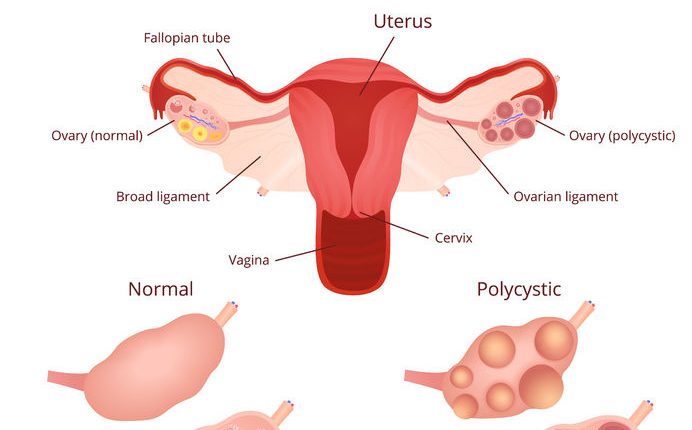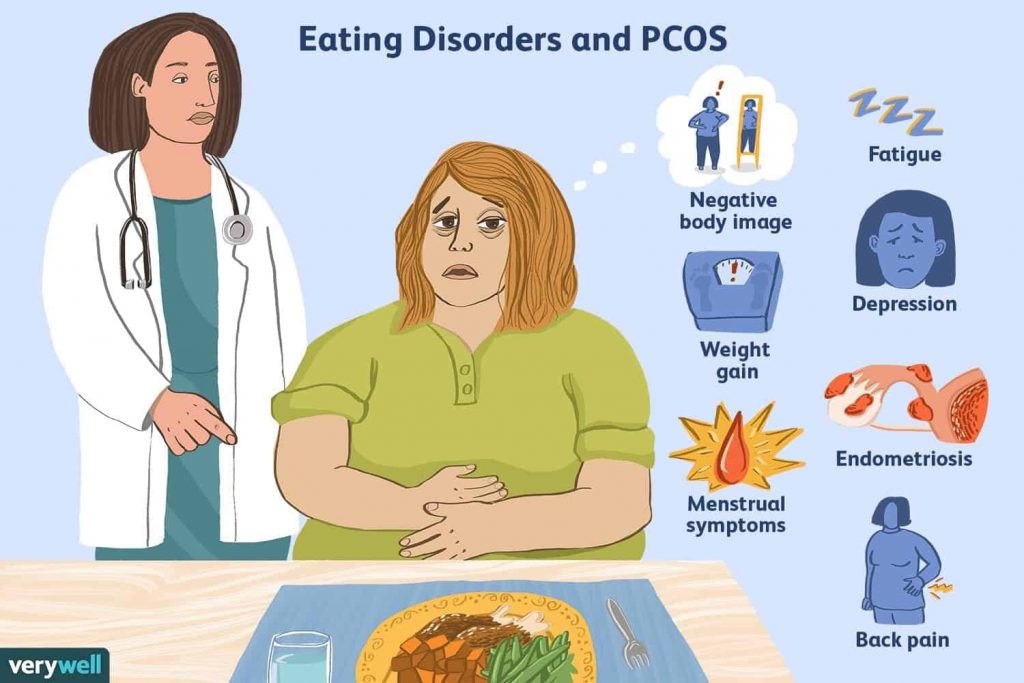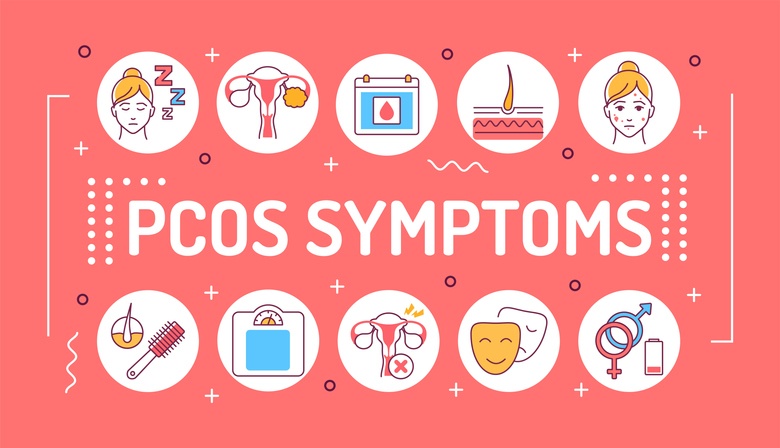What is polycystic ovarian syndrome?: Polycystic ovarian syndrome (PCOS) is one of the common lifestyle disorders for reproductive women in India. Here’s what you can do to manage PCOS at home.
What is PCOS and What are the Symptoms of PCOS

- Polycystic ovarian syndrome (PCOS) is a hormonal disorder that affects how a woman’s ovaries work
- There is no permanent cure for PCOS, but treatment along with Small changes in lifestyle can help manage PCOS symptoms
- Consult with a doctor if you have PCOS symptoms like irregular periods, hair growth on your face and body, weight gain, etc
What is polycystic ovarian syndrome (PCOS)?

- Polycystic ovarian syndrome (PCOS), also known as polycystic ovarian disease (PCOD), is one of the common lifestyle disorders for reproductive women in India.
- The hormonal disorder that causes enlarged ovaries with small cysts on the outer edges affects every 1 in 5 women, according to health experts.
- Meanwhile, Bigg Boss 13 Girl Himanshi Khurana will soon undergo surgery for PCOS.
- The reality TV star is suffering from the condition, which causes her weight to fluctuate.
A source close to the actress told an entertainment website that Himanshi Khurana is facing excessive bleeding due to the condition, which has worsened her health.
What is PCOS or PCOD?
- Basically, polycystic ovarian syndrome is a common condition that affects a woman’s hormone levels.
- The most common symptoms of PCOS include irregular periods, excess male hormone (androgen), heavy bleeding, polycystic ovaries, weight gain, darkening of the skin, thinning hair, acne, etc.
- Early diagnosis and treatment along with lifestyle modifications, including losng weight, can help treat and reduce the risk of long-term complications due to the condition.
What are causes of Polycystic Ovarian Syndrome (PCOS)?
- While the exact cause of polycystic ovarian syndrome is unknown, experts believe certain factors such as heredity, excess insulin, low-grade inflammation, may play a role in the development of PCOS.
- This condition is known to be the root cause of many lifestyle disorders in the later stage of life if it’s not controlled at an early stage.
- For instance, a study conducted by the department of endocrinology and metabolism, AIIMS, found that about 20-25 per cent of Indian women of childbearing age are suffering from PCOS, while 60 per cent of women with PCOS are obese, 35-50 per cent have a fatty liver.
- About 70 per cent have insulin resistance, 60-70 per cent have a high level of androgen and 40-60 per cent have glucose intolerance.
Natural ways to treat or manage polycystic ovarian syndrome (PCOS)?

- Treatment for PCOS usually begins with lifestyle changes – such as diet, exercise, and weight loss.
- Here are a few tips suggested by Dr Manisha Ranjan, Consultant Obstetrician and Gynaecologist, Motherhood Hospital, Noida, that can help treat or manage PCOS during the pandemic:
- Diet management is very important:
- Foods play an important role in managing PCOS condition.
- A PCOS person has to keep her diet on check as weight gain can have an adverse effect on them.
- Since junk food is not easily available due to the measures put in place to help curb the spread of COVID-19 (Coronavirus), doctors suggest women should use this lockdown as an opportunity to lose weight by shunning high-calorie foods and going for healthier options like oats, dalia, and poha instead.
- Unhealthy foods, including fried foods, sugary beverages, processed meats, red meats should be avoided.
- Even milk and its products should be avoided because it increases testosterone levels.
- As the testosterone levels are high in such conditions, the dairy products can make the problem worse.
- Regular exercise is the key:
- Weight loss is an effective way to manage PCOS.
- Various studies have found that women who do three hours of aerobic exercise per week had improved insulin sensitivity, cholesterol and reduced visceral fat (that fat around your belly) even though they did not lose any weight.
- So, don’t get dispirited when your weighing machine is not showing any improvement in weight management.
- Just continue doing your regular exercise.
- You don’t need to join a gym or purchase a ton of expensive exercise equipment.
- All you need are some basic items that you can probably get from around the house.
- There are three basic principles of exercise, that when used, are instrumental: cardiovascular health, weight training, and flexibility. Menstrual cycles can be regularised with the help of regular exercise and hormonal pills (upon your doctor’s advice, of course).
- Creating awareness about mental health and emotional health
- PCOS women are more susceptible to mood swings, depression and other mental issues.
- Therefore, it is pivotal to include mental and emotional wellness in the PCOS management.
- PCOS is one of the most prevalent health conditions of women not only in India but also in the world.
- But it is sad that despite being so common endocrine (hormonal) disorder, this disease is poorly understood by many.
- Since there is no permanent cure
- For PCOS, women struggle with their symptoms on a daily basis.
- The sheer weight of the continual battle often has an impact on a woman’s mental health.
- So, friends and family should be extra kind toward them.
Read Also: Arjun Kapoor And Malaika Arora Khan Covid-19 Positive
Get the Latest and Breaking News, Entertainment News, Technology News, Sports News Like Cricket, Government Jobs Alert, Government Results and Health & Fitness News here.








